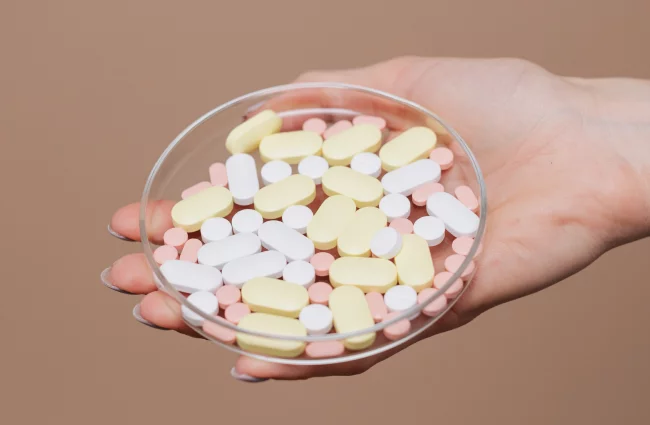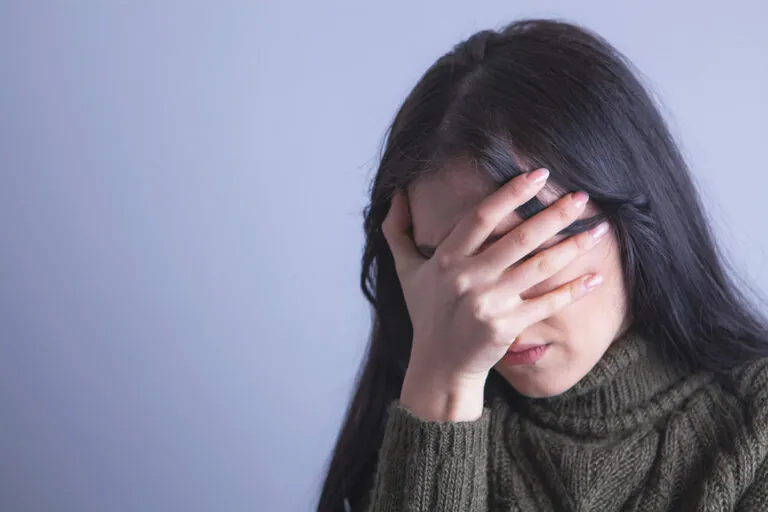Gabapentin is a prescription anticonvulsant medication that has several legitimate medical uses. But this drug is sometimes used recreationally by people looking for a “high,” especially in combination with other drugs and alcohol. Gabapentin tablets and capsules are sold on the street as “gabbies”. People who misuse or abuse gabapentin frequently take the drug at higher doses than typically prescribed doses, putting themselves at considerable risk.
If you or a loved one is struggling with gabapentin abuse, please keep reading. We will talk about the risks of abusing gabapentin and how long gabapentin stays in your system.
What Is Gabapentin?
Gabapentin is a prescription anticonvulsant medication. The generic drug gabapentin is also sold under the brand names Neurontin, Horizant, and Gralise.
What is Gabapentin Used to Treat?
The U.S. Food and Drug Administration (FDA) has approved gabapentin to treat certain types of seizures in adults and children with epilepsy. It is also used to treat postherpetic neuralgia (a burning, stabbing pain from shingles that can last for months or years). The extended-release gabapentin tablet is approved to treat restless legs syndrome (a condition associated with leg discomfort and a strong urge to move the legs, especially when sitting or lying down).
Gabapentin may also be used off-label (non-FDA approved uses) to treat other types of nerve pain such as peripheral neuropathy, diabetic neuropathy, and trigeminal neuralgia; fibromyalgia; complex regional pain syndrome; periodic limb movement disorder; essential tremor; anxiety disorder; bipolar disorder; attention deficit hyperactivity disorder; irritable bowel syndrome; migraine headaches; and withdrawal symptoms from alcohol and other drugs.
How Does Gabapentin Work?
Gabapentin has a chemical structure that is similar to a neurotransmitter (natural chemical) in the brain called gamma aminobutyric acid (GABA). GABA is inhibitory in nature, meaning it slows brain activity. Gabapentin therefore helps to treat seizures by slowing abnormal brain activity. It relieves pain from shingles by changing the way the body perceives pain. We don’t know exactly how gabapentin provides relief from restless legs syndrome.
Some people misuse or abuse gabapentin because it produces euphoria or a “high,” improves sociability, and creates a sense of calm and relaxation.
What is the Half-Life of Gabapentin?
The half-life of gabapentin is 5-7 hours. Half-life is the time it takes for the concentration of a drug in the blood to fall to half its original value. A drug’s half-life depends on how fast the body processes it and gets rid of it. With an average half-life of 5-7 hours, it takes the body 2 days to eliminate gabapentin from the system.
How Long Does Gabapentin Stay in Your System After You Stop Taking It?
Gabapentin stays in your system for 2 days after you stop taking it. This is assuming you are a healthy adult and you don’t take any additional doses of gabapentin and don’t take any other medications that can affect gabapentin elimination.
The percentage of gabapentin eliminated from the body is related to the number of half-lives. Around 90% of gabapentin is removed from the body after approximately 3.3 half-lives. Approximately 94- 97% of gabapentin is removed from your system after 4 to 5 half-lives. Therefore, after 4 to 5 half-lives, the plasma concentration of gabapentin falls to below a clinically relevant concentration and it is considered eliminated from the body.
As mentioned, the half-life of gabapentin is 5-7 hours, so this means it is no longer present in your system 2 days after the last dose (5-7 hours multiplied by 4-5 half-lives equals 20 to 36 hours).
What Factors Influence Gabapentin Retention in Your Body?
Kidney function
Gabapentin is eliminated from the body by the kidneys through urine. In people with impaired renal function, the plasma clearance of gabapentin may be slowed and the drug may be retained in the body longer.
Do you have a loved one struggling with addiction?
We know how hard that can be. Give us a call to find out what options you have.
Age
There is a natural decline in kidney function with age even in the absence of overt kidney disease. Decreased renal clearance of gabapentin in elderly individuals may prolong the half-life of the drug, This can result in increased blood concentrations of gabapentin in older adults.
Drug Interactions
Co-administration of certain medications, for example, opioid painkillers, along with gabapentin can increase gabapentin concentrations in the body. This can put you at risk of serious adverse effects, including respiratory depression (shallow, slowed, or stopped breathing).
What Are the Side Effects of Gabapentin?
The most common side effects of gabapentin include drowsiness, dizziness, headache, tiredness, weakness, blurred vision, double vision, unsteadiness, shakiness, memory problems, anxiety, strange or unusual thoughts, uncontrolled eye movements, heartburn, nausea, vomiting, diarrhea, constipation, dry mouth, increased appetite, weight gain, back pain, swelling of the limbs, fever, flu-like symptoms, ear pain, and eye pain.
Gabapentin can also cause serious side effects that require emergency medical care, such as an allergic reaction, difficulty breathing or swallowing, seizures, confusion, and extreme sleepiness.
In addition, antiepileptic drugs, including gabapentin are associated with an increased risk of suicidal thinking and behavior.
Is Gabapentin Addictive?
Gabapentin can be addictive if it is abused or misused recreationally and used without a doctor’s prescription. However, gabapentin is not on the Drug Enforcement Administration (DEA’s) list of scheduled drugs. It is not a controlled substance that carries a high potential for abuse and addiction. Some states in the US classify gabapentin as a Schedule V substance with a small risk of abuse and dependence.
In the United States, the number of gabapentin prescriptions written every year has been growing steadily, up from around 18 million in 2004 to 47 million in 2021. The number of prescriptions and the urgency of prescription requests cannot be explained completely by an increasing number of legitimate medical problems requiring gabapentin treatment. In other words, unfortunately, gabapentin abuse appears to be growing. Many people are using this drug recreationally for its relaxing, calming, and pain-relieving effects.
How is Gabapentin Detected in Drug Tests?
- Blood Tests
The presence of gabapentin in the body can be detected with a blood test for 5-7 hours after the last dose. - Urine Tests
Gabapentin can be detected in the urine for 1-3 days in most cases. Urine drug tests for gabapentin are the most common method of detecting the drug. - Saliva Tests
Gabapentin is not detectable on saliva drug tests. - Hair Tests
Gabapentin may be detected in hair samples for up to 90 days after the last dose. However, hair tests are rarely performed.
What Is Gabapentin Withdrawal?
People who misuse or abuse gabapentin can become psychologically and physically dependent on the drug. They may experience withdrawal symptoms when attempting to quit using it. Gabapentin withdrawal symptoms can begin anywhere from 12 hours to 7 days after the last dose and can last for 7-10 days. They can include nausea, dizziness, insomnia, mood changes, and anxiety.
What To Do If You’re Struggling with Gabapentin Abuse?
If you or a loved one is struggling with gabapentin abuse, help is available. It is important to undergo a supervised gabapentin detox under the care of medical professionals. This can ensure a safe and comfortable gabapentin withdrawal.
At Discover Recovery Treatment Center in Washington State, we offer holistic substance abuse treatment programs that are tailored to address the unique needs of each client. Our multi-level rehabilitation programs for prescription drug abuse are designed to help you overcome your addiction by addressing the root causes, including the psychosocial issues that led to drug abuse. Specialized care, support, and addiction treatment from our highly experienced team of medical professionals can help you or a loved one struggling with gabapentin addiction. Call us today and take the first step towards a happier, healthier life, free of gabapentin use.





